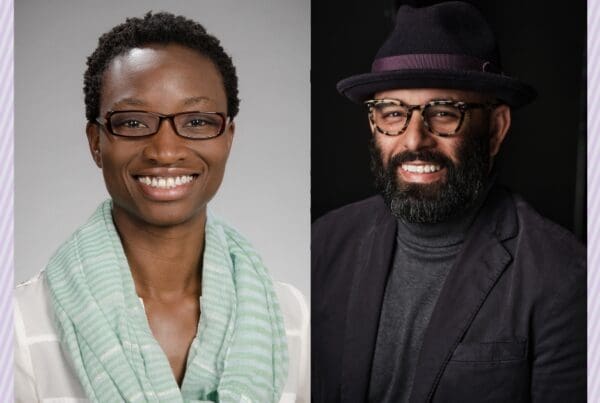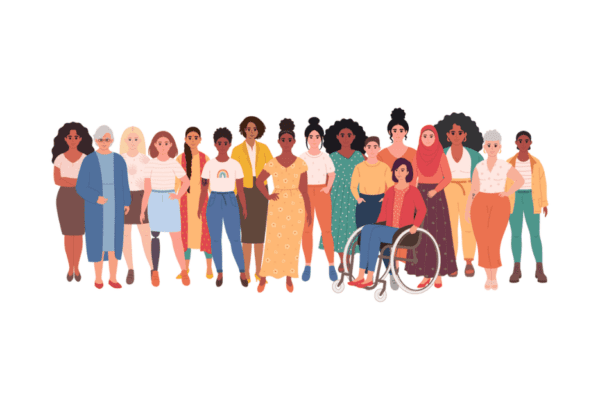May is Asian American, Native Hawaiian and Pacific Islander Heritage Month, a time to recognize and celebrate Asian American (AA), Native Hawaiian and Pacific Islanders (NHPI), their cultures and their contributions to America and the world.
According to the Federal Asian Pacific American Council (FAPAC), the theme for AA and NHPI Heritage Month 2022 is “Advancing Leaders Through Collaboration.” The FAPAC encourages local and national governments to prioritize collaboration, development, diversity, transparency and inclusion through leadership training of AA and NHPI people.
While the month is still officially recognized as AA and NHPI Heritage Month, there are also national and local movements to establish a separate month to celebrate Pacific Islander heritage. This is because, even during AA and NHPI month, Native Hawaiians and other Pacific Islanders are often excluded or overlooked.
The Pacific Islander Community Association of Washington (PICA-WA) team and Pasifika communities (Pacific Islander or Pasifika people are those originating or living in Micronesia, Melanesia and Polynesia) are working to establish the month of August as Native Hawaiian and Pacific Islander Heritage Month on the state and national level. This will raise awareness of the unique experiences and diverse narratives of Pasifika peoples and cultures and help prevent erasure of this population. At UW Medicine, we will continue to evaluate the language and connect with these communities so we can grow and evolve as well.
Just like it is important to recognize this difference and diversity, it is equally important to recognize that, despite the visibility of Asians as the most populous minority group in Seattle and Washington state, Asian, Native Hawaiian, and Pacific Islander Americans still face racism and other inequities.
People of Asian ancestry are 9.6% of people in Washington and 16.3% of people in Seattle, according to 2021 census data. Yet anti-Asian racism has been present in Washington before it was even a state, when the first Asian immigrants arrived in the 1800s. The pandemic and anti-Chinese racism resulting from it have only heightened this in the past couple years.
While holding space for the challenges these communities face, we must also hold space for celebrating and honoring them. In the field of medicine, Asian, Native Hawaiian, and Pacific Islanders make up a large portion of the healthcare workforce. At UW Medicine 23.3% of employees are Asian and 1.4% are Native Hawaiian or Pacific Islander. These individuals have made countless contributions to medicine and have been pioneers in research and clinical care.
UW Medicine employees who are making a difference
The contributions of our employees with Asian, Native Hawaiian and Pacific Islander heritage have advanced medicine, saved lives and helped improve the health of the public. This nonexhaustive list gives insight into some of the people doing this incredible work
Helen Chu, MD, MPH, assistant professor of Medicine and Allergy and Infectious Diseases and an adjunct assistant professor of Epidemiology, runs the Seattle Flu Study, which first detected community transmission of COVID-19 in the Seattle area.
Jesse Fann, MD, MPH, director of the Psychiatry and Psychology Service at Seattle Cancer Care Alliance and a UW professor of Psychiatry and Behavioral Sciences, is a leader in mental healthcare for cancer patients and for other people with serious chronic diseases, such as traumatic head injuries.
Rong Tian, MD, MPH, joint professor of Anesthesiology and Bioengineering, is an international leader in studying mitochondria and is hoping that medications can be developed to treat mitochondrial problems, such as some forms of heart disease and aging.
Ning Zheng, PhD, professor of Pharmacology, researches how proteins interact with each other and with other biological molecules to mediate biological functions. Through this work, he hopes to accelerate the discovery and development of novel therapeutic drugs.
Sirisak Chanprasert, MD, is triple board certified in Internal Medicine, Medical Genetics and Medical Biochemical Genetics. He works at the Kidney Genetics Clinic and the Center on Human Development and Disability at UW Medical Center and is interested in researching and treating adult-onset metabolic and mitochondrial diseases which were once thought to be diseases of children.
Ken Fujise, MD, FACC, FACP, FAHA, FSCAI, is an interventional cardiologist who treats coronary artery diseases and leaky valves. His clinical interests include coronary artery disease, thickening of the innermost layer of the heart arteries, and heart muscle damage.
Thuan D. Ong, MD, MPH, is a specialist in geriatric medicine and helps older adults create a healthy lifestyle to improve or maintain their current level of function.
Resources
Honoring Asian American, Native Hawaiian and Pacific Islander peoples and cultures should happen year-round — and we’ve compiled a list of resources to help you do just that this May and beyond.
Visit
Get outside
- Seattle Japanese Garden and its Family Saturday and Koi Day on May 15
- Pista sa Nayon Festival
- Chinatown Seafair Parade
- Kubota Garden
- Seattle Chinese Garden at South Seattle College.
- Asian American and Pacific Islander Heritage Night at the Mariners
- Seattle Bon Odori
Read
- The history of Chinese Americans in Washington
- The history of Filipino Americans in Seattle
- The history of Japanese Americans in King County and Spokane
- The history of Korean Americans in King County
- The history of Seattle’s Samoan Community
- The history of Southeast Asians in Washington
- 12 Ways to Celebrate Asian Pacific American Heritage Month
- Understanding What the Term AAPI — Asian Americans and Pacific Islanders — Means
- Learn more about the Native Hawaiian/Pacific Islander Community
- Indian Freedom Fighters
- 15 Queer Asian and Asian American Entrepreneurs to Support Now
- Asian chefs and celebrities share what role food plays in their lives
- Asian-owned businesses to support
- AAPI Solidarity Means Acknowledging How Pacific Islanders Are Often Left Out
- Why It’s Time to Retire the Term Asian Pacific Islander
Watch
- PBS videos that explore the history, traditions and culture of Asians and Pacific Islanders in the U.S.
- “Caretakers” a look at the history of Filipinos in care work and profiles Filipino Americans on the front lines today
- Queendom 2, a South Korean reality competition between 6 trending K-pop group acts
- Morning Star Narae, a Korean Folktale
- India’s Third Gender Movement
- Trying Asian Burgers in Seattle
Listen
- The First Days Story Project, which preserves the history of veterans and refugees of the Vietnam War
- Taimaine: Tiny Desk Concert
- BTS: Tiny Desk (Home) Concert
- Raveena: Tiny Desk Concert
- Mitski: Tiny Desk Concert
- SsingSsing: Tiny Desk Concert
Get involved
- Add our AAPI Solidary icon to your email signature and learn more about the imagery on it: flowers from different Asian and Pacific Islander communities.
- Add our AAPI Zoom background.
- Learn more about anti-Asian racism during the pandemic in Seattle and beyond.
Photo Caption: An illustration of flowers from the diverse cultures and communities of Asia and the Pacific Islands of Melanesia, Micronesia and Polynesia. Learn about the significance of these popular flowers.


